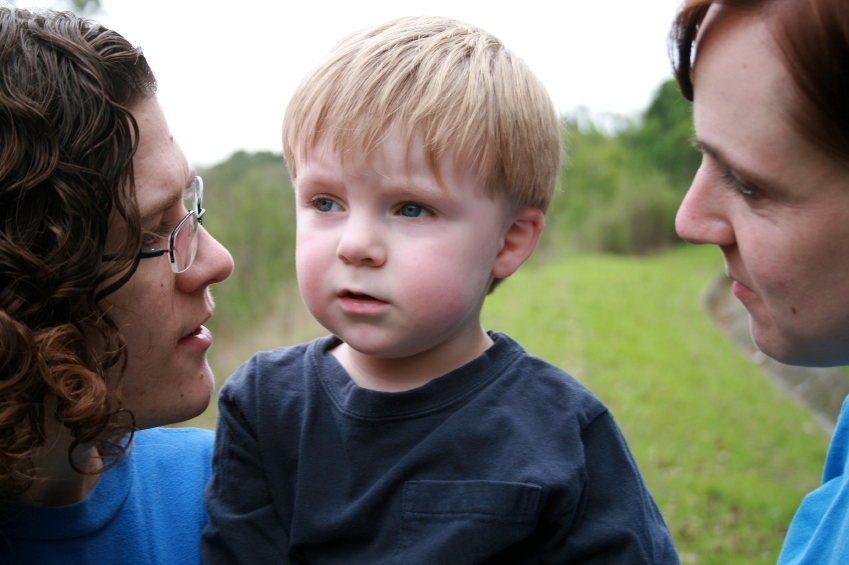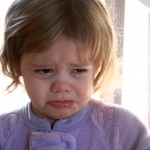
Daycare centers are entrusted by parents to take care of their children. They provide a vital service to countless parents, but what do you do if you suspect daycare abuse?
Daycare abuse is a serious issue – one which is seen in the news more and more these days. Such abuse can have far-reaching consequences for the child, as well as their family. Children are trusting, and a child is more-easily influenced and manipulated by an adult looking to take advantage of them.
Child abusers typically follow a certain unwritten protocol. In most cases of child abuse, the abuser uses fear to intimidate or extort the victim and keep them from speaking about the abuse. These monsters will often tell children that if they tell anyone, that they (the child) will get in trouble. Sometimes these abusers will take advantage of a child by first gaining the child’s trust, and then stressing that it needs to stay “their little secret.”
In order for you to find out about such manipulative abuse, you need to speak with your child about these things and ensure them that they can talk to you about anything without fear of retaliation.
Types of Child Abuse
There are different types of child abuse, with the most common ones being physical abuse, sexual abuse, emotional abuse, and neglect. All forms of child abuse can have detrimental effects, and in order to give your child the best chance at recovering from (and working through) such trauma, you need to be vigilant, supportive, and explore all options for treatment such as counseling or therapy.
How do you know if your child is a victim of child abuse? This depends on the type of abuse he or she has endured. In addition to keeping communication lines open between you and your child, you should be on the lookout for any kind of suspicious behavior or physical symptoms of abuse. In some instances, children can’t (or do not want to) talk about these things. Don’t take their silence as a sign that all is well, though. There are cues to watch for that could indicate a serious problem.
Common Signs of Child Abuse

1) Changes in behavior or extreme mood swings.
Take notice if your child suddenly becomes withdrawn, shy, depressed, or shows signs of guilt or shame (e.g., a fear of being punished for very small missteps). It’s perfectly normal for children to start having more of a desire to be independent as they get older. However, younger children usually don’t manifest this to any great extent.
If your child suddenly seems very withdrawn and caught up in their own world, it may be a sign that they’re hiding something. It’s very difficult for children to keep secrets, and when they feel ashamed, they may retreat into themselves.
An abused child may also become aggressive as a way of dealing with the trauma of abuse. Kicking, biting and scratching are all red flags in this scenario.
2) Showing an unusual interest in sexual matters.
Sometimes, children who are sexually abused will act out inappropriate sexual activity or demonstrate sexual knowledge that is far beyond what they’d be expected to know at their age. They’re being exposed to this information somewhere, and too often, it’s a sexual abuser who is exposing them to this information. If your child demonstrates knowledge that doesn’t seem appropriate for someone in their age group, you may want to consider investigating the matter further.
3) Showing fear or anxiety toward the daycare or an employee.
An abused child will tend to be clingy and react in a fearful or angry manner when about to be dropped off at daycare. They may fake illness, cry, or otherwise make excuses not to attend. Although such outbursts may initially be written off as tantrums, pay attention and see if there’s a pattern (especially if this behavior always has to do with the daycare center). If your child comes to you expressing discontent about a certain individual in the daycare center, it’s your responsibility to take them seriously and ask more questions.
4) Unexplained bruises, welts and cuts.
Unexplained bruises, welts and cuts which do not go away may also signal child abuse. Bruises on the wrists, forearms, buttocks, back of the legs, the neck, or shoulders are often indicative of physical abuse (as opposed to falls or accidents). If the child flinches at sudden movements, a raised hand, or cowers when being touched, this is a strong sign of previous physical abuse.
5) Reverting to infantile behavior that they outgrew a long time ago.
If your child shows signs of regressive behavior (excessive clinginess, bed wetting, thumb sucking, fear of the dark, excessive crying, etc.), this could indicate serious emotional issues often caused by verbal or sexual abuse.
6) Night terrors or recurring nightmares.
Any kind of trauma isn’t easy for the minds of little children to bear. As a result, they internalize it and push it deep into their unconscious, and this may manifest itself in bad dreams and night terrors.
7) Urinary tract infections or soreness around the genitals.
Any urinary tract infection, yeast infection, or sexually transmitted disease is obviously a serious causes for concern. Itchiness or soreness around the genitals is also a major red flag. If your child is experiencing any of these issues, please seek a medical evaluation as soon as possible.
8) Trust your own instinct.
Parents have great instincts where their children’s safety is concerned. If you just have that feeling that something isn’t right, take the time to talk to your child. Make sure you’re not leading them into giving you answers to confirm your suspicions, however, it’s very important that children feel like they’re listened to, and that they don’t feel like they have to hide things out of shame or embarrassment.
Parents have a tendency to want to be their child’s best friend. Parents are much more than that, and your children need to know that they can tell you anything.
Abuse Has Lasting Effects
Child abuse by a daycare employee can have lasting effects which may require long-term medical or psychological treatment. You may have to engage quite a few resources to help support a child who has been abused. Their trust of adults may be significantly diminished, so there may be behavioral and social issues that they’ll struggle with.
Many abusers unfortunately seek out employment in places such as daycare centers since this gives them easy access to children. While licensed daycare centers in Texas are required to background check employees with access to children, it’s not uncommon for daycare centers to fail to do so. Leaving your child with an unlicensed daycare provider is very dangerous, as there is no regulatory oversight of any kind.
If your child shows signs that may be indicative of physical or sexual abuse, it’s important that you take them to a doctor for an examination. Pediatric doctors are able to determine—with a great degree of accuracy—how an injury likely occurred. They also know what injuries are rather normal for children and which ones are not. This determination is important for both civil and criminal cases brought against the perpetrator of the abuse.
Reporting Abuse and Taking Action
If you suspect or have evidence pointing to daycare abuse, report your suspicions to authorities in your state. Someone who reports child abuse is not necessarily making an accusation, but rather they are reporting their suspicions that there may be abuse or neglect occurring. It’s important to remember that your actions could prevent further instances of abuse and save an untold number of potential daycare abuse victims.
Reporting your suspicions to the daycare operator or manager is simply not enough. While the owner may be fully-aware of the legal obligation to report suspicions of child abuse, in reality, many find it easier to avoid any involvement and hope that the incident blows over. This “wait and see” approach is not only illegal, but also makes the child vulnerable to continued incidents of abuse.
While it is ultimately up to the police to seek criminal charges in daycare child abuse cases, you absolutely have the right to pursue a civil claim against the daycare in question in order to seek compensation for any related losses. These losses can include pain and suffering, the cost of alternative child care, the cost of therapy or counseling, compensation for lost wages, medical bills, and more.
Rasansky Law Firm has has considerable experience with daycare abuse lawsuits, and we handle these cases on a no-win, no-fee basis. You’ll never have to pay us a penny out of pocket to pursue your claim, and we only take a fee if we actually win your family compensation.
Send us an email or call us at 1-877-403-9378, and we’ll discuss the options available to you and your family moving forward.



1 Comment
[…] Rasansky Law Firm reports that signs of day care abuse include extreme mood swings, acting out, showing knowledge of sexual activity, or unexplained injuries. Other signs include fear or anxiety about the day care or a worker and regressive behavior. […]
Comments are closed.